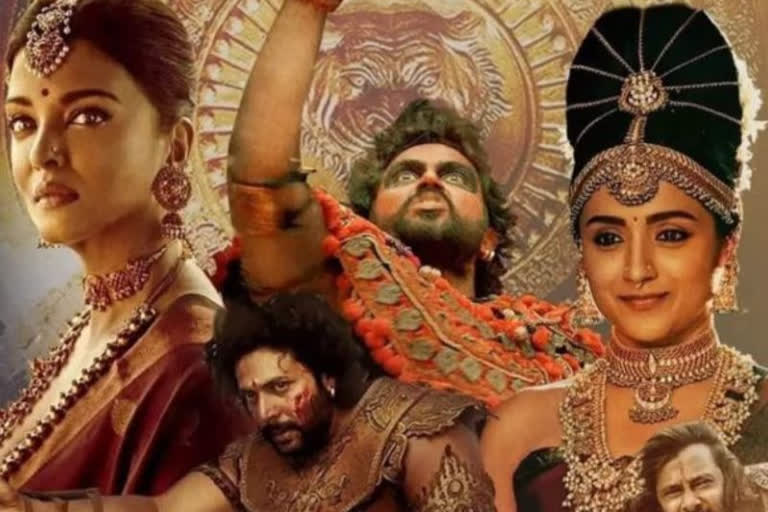Chennai:It is a dream project which has proved elusive for many, including the iconic MG Ramachandran and versatile actor Kamal Hassan. It was left for ace filmmaker Mani Ratnam to accomplish it. A multi-starrer period drama on the succession to the Chola throne, the movie is an ambitious attempt to do justice to the expansively wide canvas of Kalki's hugely popular novel that brings to life the grandeur and glory of the imperial Cholas, with spicy palace intrigues.
Ponniyin Selvan- 1, is set in the backdrop of the later Chola dynasty emerging as empire-builders from the 10th century CE, with Raja Raja bringing under his reign most of South India besides conquering Sri Lanka. Following his footsteps, his son Rajendra expanded the empire up to the Gangetic plains and to the Malay peninsula.
Under the Cholas, peninsular India witnessed political stability and rapid expansion of agriculture, and growth in trade and commerce. Yet, it was also the time when settlements were carved out for Brahmins from the north with land grants and the Devadasi system got entrenched. It was during the Chola reign that a rigid caste system was imposed.
With a gripping narrative, the novel tells the story through the exploits of Vallavaraiyan Vandhiya Thevan (played by Karthi), an imaginary character who is in love with enchanting princess Kundavai (played by Trisha), sister of Arunmozhi Varman (Jayam Ravi) and Aditha Karikalan (Vikram). Painting a rosy picture of the era, it concludes with the coronation of Raja Raja. Mani Ratnam has adapted the five-part novel into a two-part film and PS-1 also touches upon the fierce Vaishnavite-Saivite divide as well, adhering to the original. No wonder, it also invites the criticism of reconstructing a history that simply eulogizes the past as a golden era.
Both the novel and the film revolve around the plot to murder Aditha Karikalan and its execution. For Kalki, it is revenge by the personal bodyguards of the vanquished Pandya king of Madurai with the active connivance of the seductive Nandhini (Aishwarya Rai). While Nandhini and Adiththa Karikalan were in love, she vanished and was seen nursing Veerapandian, the Pandya monarch, injured in battle. Ignoring her plea to spare his life, Adiththa Karikalan beheads him in revenge for his grandpa's beheading.
But, the reason for the murder of Aditha Karikalan and who are all behind it remains a mystery. The names of all the conspirators who carried out the murder have been named in the Udayarkudi inscription. Even Raja Raja deporting the guilty Brahmins and only confiscating their property has been questioned by renowned historians KA Neelakanta Sastri and Sadasiva Pandarathar. However, both of them have exonerated Raja Raja though the riddle of the whodunit is yet to be unraveled more than 100 years after.
Also Read:Ford executes settlement agreement with workers in TN plant
For some scholars, the social life of the Chola era is of utmost importance. “True he built the famed Big temple in Thanjavur, an architectural marvel. But, it has never been elevated as a major Saivaite shrine, unlike others. It was during his reign that Brahmins from the north were brought in and given land grants. Such settlements were called Chaturvedi Mangalam. The Devadasi system got deeply entrenched, the caste system was made rigid with the first recorded separate graveyard for Dalits in history.
Hence, reconstructing the past serves a purpose and this has to be questioned. The burden of the past needs to be thrown off,” maintain professor A Marx and researcher Po Velsamy. While the movie, raking the moolah at the box office, has kindled audience interest in history, it has also spurred a debate on the past.
